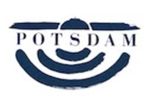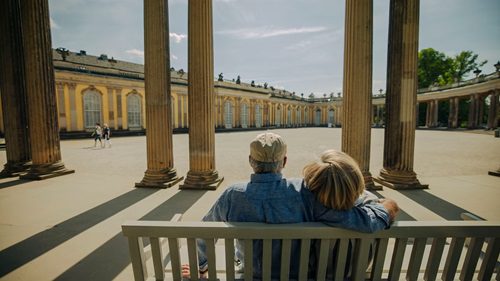 Potsdam has emerged as a booming travel hotspot, welcoming a surge of national and international visitors this summer, signalling a complete rebound from the pandemic’s impact on the travel industry. With an average stay extending to 2.5 days compared to 2.4 days in 2019, the city is witnessing longer visitor durations and a significant boost in economic activity. This growth, while promising, places Potsdam on the precipice of a dilemma faced by many renowned destinations globally—sustaining tourism growth while preserving the city’s unique charm and livability.
Potsdam has emerged as a booming travel hotspot, welcoming a surge of national and international visitors this summer, signalling a complete rebound from the pandemic’s impact on the travel industry. With an average stay extending to 2.5 days compared to 2.4 days in 2019, the city is witnessing longer visitor durations and a significant boost in economic activity. This growth, while promising, places Potsdam on the precipice of a dilemma faced by many renowned destinations globally—sustaining tourism growth while preserving the city’s unique charm and livability.
Post-Covid Boom: A Double-Edged Sword?
Tourism is often celebrated as a powerful economic driver. Still, for many destinations, the question is no longer about attracting visitors but managing them effectively. Cities such as Venice and Amsterdam, alongside regions like the Canary and Balearic Islands, have grappled with the pressures of “overtourism,” leading to resident protests and a tangible strain on infrastructure and natural resources. The result is a delicate balancing act between tourism promotion and preserving local life—a challenge Potsdam’s tourism officials are keenly aware of.
However, unlike its European counterparts, Potsdam has managed to avoid the adverse effects of mass tourism—at least for now. The city’s picturesque landscape, set amidst the serene Havel Lake district, and its reputation as a cultural treasure trove with attractions like Sanssouci Palace and the historic Old Market Square make it a highly desirable destination for discerning travellers.
Strategic Approach to Sustainable Growth
Potsdam Marketing and Service GmbH (PMSG), spearheading the city’s tourism strategy, has proactively planned for sustainable growth. Anne Robertshaw, a recently appointed tourism expert and management board member, emphasizes the importance of a thoughtful approach to visitor management.
“A well-thought-out visitor management system is key. It’s the only way to make tourism sustainable and acceptable,” she asserts, underscoring the importance of long-term planning in maintaining local support for the tourism industry.
To this end, PMSG has established the “Tourismusbereit” (Tourism Advisory Board), a coalition of key industry stakeholders formed in July 2023, to facilitate dialogue and collaboration on sustainable tourism practices. “Communication with our partners in the tourism industry is essential to our work,” Robertshaw explains. The initiative aims to harmonize the interests of the local community with the growth ambitions of the tourism sector, ensuring that Potsdam remains both a welcoming destination and a livable city for its residents.
Elevating Potsdam as a Premier MICE Destination
One key area of focus for PMSG is positioning Potsdam as a leading destination for MICE (Meetings, Incentives, Conventions, and Exhibitions). The city’s upcoming Tourism Day, scheduled for October 10, 2024, will centre on Potsdam’s potential as a sustainable MICE hub. The event’s agenda, aptly themed “One Day, Two Topics, Two Locations, and One Big Award,” aims to shine a spotlight on Potsdam’s capacity to host “green” meetings, emphasizing its commitment to minimizing the environmental impact of large-scale events.
This year’s conference will be pivotal, as Potsdam is set to receive its long-awaited certification as a sustainable destination. This milestone will enhance its appeal to eco-conscious travellers and attract companies and organizations seeking venues for environmentally responsible conferences and events.
“We want to raise awareness of our city’s potential. An island in the middle of the Havel lake district and a very green city to boot, Potsdam is not only attractive to its residents and guests, but it also offers companies ideal conditions for events and conferences,” Robertshaw remarks, highlighting the city’s unique positioning in the competitive MICE market.
Avoiding Overtourism: A Cautionary Tale
Potsdam’s success story starkly contrasts the ongoing struggles in other European destinations. In Venice, the influx of tourists has transformed the historic city into a backdrop for mass tourism, disrupting daily life and leading to widespread discontent among locals. Similar issues plague the Balearic Islands, where resident protests against overtourism have made international headlines, calling for caps on visitor numbers and stricter regulations to protect the region’s delicate ecosystem.
Potsdam, on the other hand, has the opportunity to learn from these cautionary tales. By focusing on quality over quantity and leveraging its strengths as a MICE and cultural destination, the city aims to chart a different path—one that prioritizes the well-being of its residents while continuing to welcome visitors from around the world.
Looking Ahead: A Sustainable Future
As Potsdam navigates this period of growth, the emphasis will remain on ensuring that tourism development aligns with the city’s sustainability goals. The upcoming certification as a sustainable destination will be a significant step forward, setting a precedent for other mid-sized towns seeking to balance tourism and livability.
With initiatives such as the Tourism Advisory Board and the annual Tourism Day, Potsdam is laying the groundwork for a new era of responsible tourism management—one that could serve as a model for other cities facing similar challenges.
For more information on Potsdam’s tourism initiatives and the upcoming Tourism Day event, visit Potsdam Marketing and Service GmbH’s official site.
Written by: Yves Thomas




















